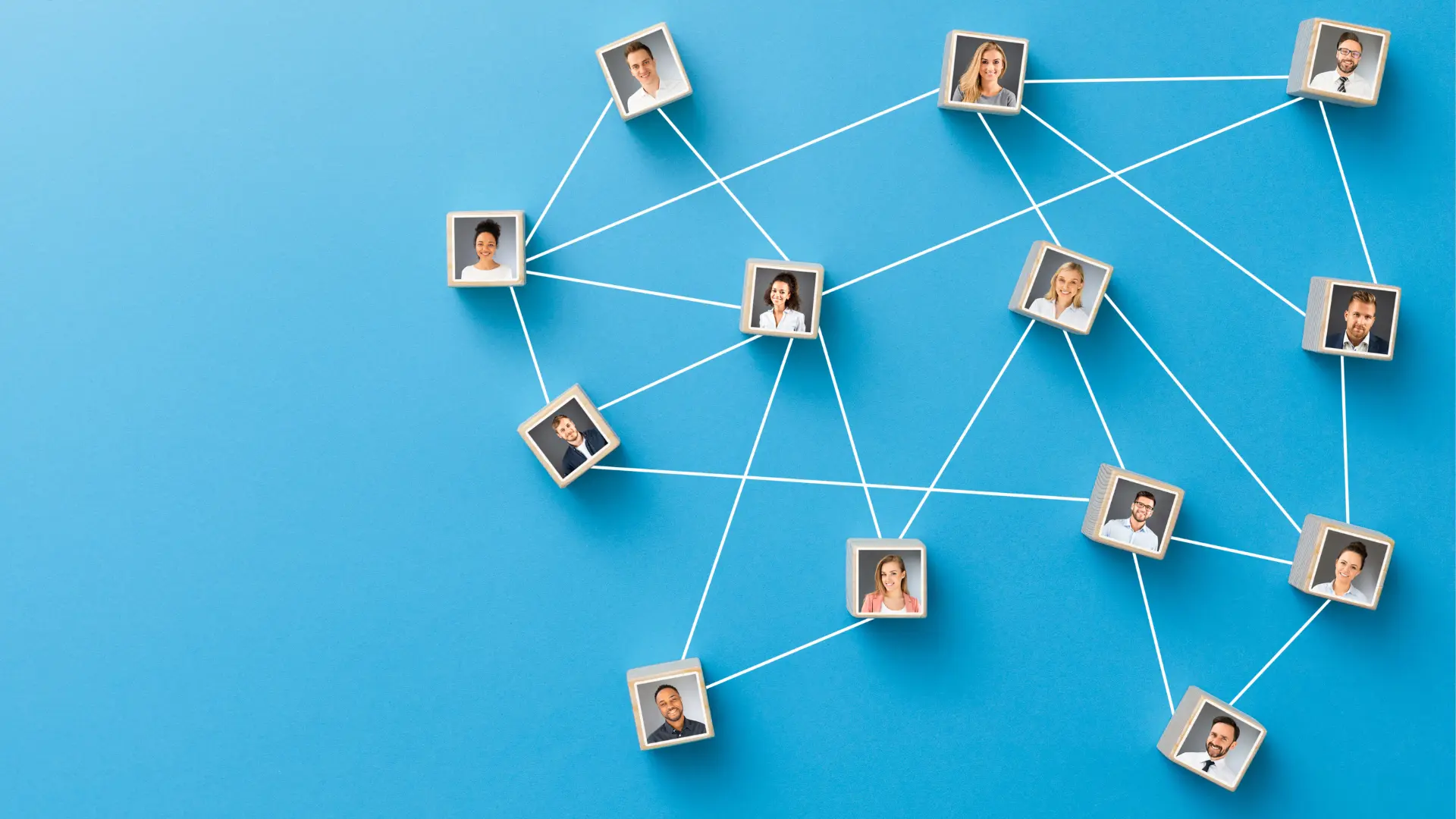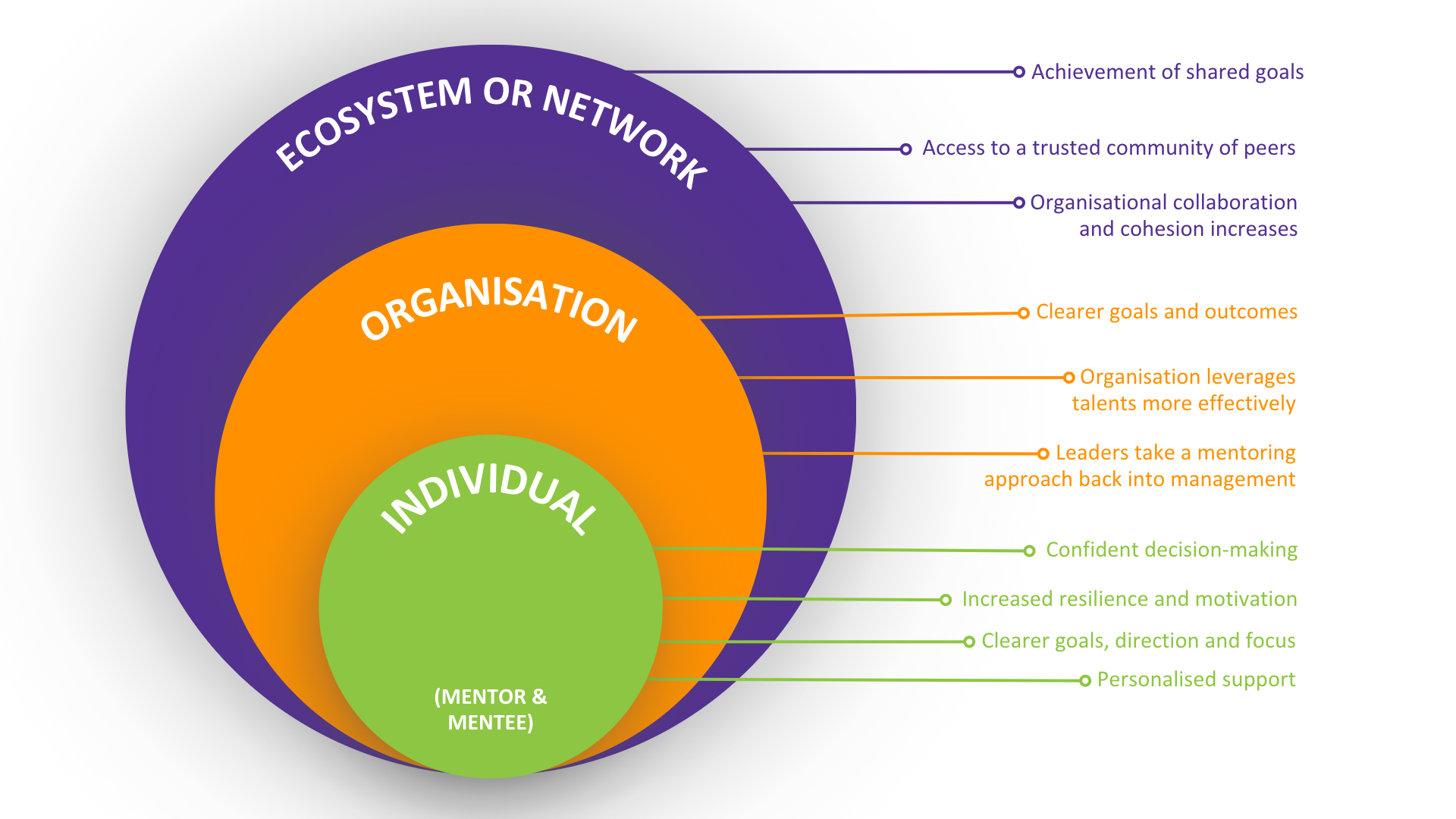
Mentoring is a powerful tool for individual growth that can have a ripple effect on the broader socio-economic landscape. Impact-driven donors, funders, and foundations should care about mentoring because it is a cost-effective way to create positive change within communities and beyond.
At its core, mentoring is about building relationships that foster learning and development. For individuals, mentoring can provide guidance, support, and inspiration to achieve their goals. Mentors can offer insights into industry best practices, help mentees navigate workplace challenges, and provide opportunities for networking and skill-building.
But the benefits of mentoring extend far beyond the individual level. When more people have access to quality mentoring, it can contribute to the growth of businesses, industries, and sectors. Mentoring programmes can increase diversity and inclusion in the workplace, which has been shown to lead to better decision-making and improved financial performance
Moreover, mentoring can be particularly impactful in addressing global socio-economic challenges. For example, mentoring can help individuals develop skills to succeed in the green economy, which is essential for mitigating climate change. Mentoring can also provide opportunities for young people in underserved communities to learn about entrepreneurship and start their own businesses, which can contribute to economic development, social mobility, reduce income inequality and job creation.

Global Socioeconomic Challenge | Benefit of Mentoring | Explanation |
|---|---|---|
Poverty | Improved career development and opportunities | Mentoring provides individuals from underprivileged backgrounds with opportunities to gain new skills, experience, and connections that can lead to better-paying jobs and financial stability. |
Education | Enhanced personal and professional growth | Mentoring can help students and educators develop critical thinking skills, improve their academic performance, and gain valuable career insights. |
Health | Improved leadership skills | Mentoring can help healthcare professionals develop leadership skills, such as active listening, or giving and receiving constructive feedback that are critical for providing high-quality patient care. |
Gender Equality | Increased diversity and inclusion | Mentoring provides opportunities for individuals from diverse backgrounds to connect, learn from each other, and build stronger, more inclusive communities. This is essential for promoting gender equality and creating a more just and equitable society for all. |
Climate Change | Improved organisational culture | Mentoring can help organisations and the leaders within them develop a culture of sustainability, where employees are committed to reducing their environmental impact and promoting sustainable practices. |
Global Economic Inequality | Increased social impact and change | Mentoring is a proven tool for creating sustainable socioeconomic change that benefits individuals, organisations, and communities. By investing in mentoring, donors, funders, and foundations can help create a more equitable, just, and prosperous society for all. |
To achieve these broader impacts, it is essential that mentoring programmes are well-designed and effectively implemented. Donors, funders, and foundations can support mentoring by funding programmes that have a strong track record of success, providing resources for training and evaluation, and collaborating with other organisations to create a network of support.
—
Mentoring is a critical and effective tool that can contribute to individual growth, business success, and global prosperity. Impact-driven donors, funders, and foundations should care about mentoring because it is an effective way to create positive change within communities and beyond. By supporting mentoring programmes, we can help individuals reach their potential and contribute to a more equitable and prosperous world.